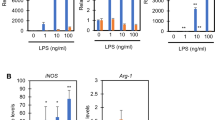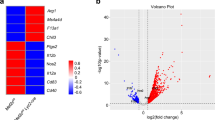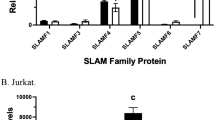Abstract
Macrophages play critical roles in innate immune and acquired immune via secreting pro-inflammatory mediators, phagocytosing microorganisms and presenting antigens. Activin A, a member of transforming growth factor β (TGF-β) superfamily, is produced by macrophages and microglia cells. In this study, we reported a direct effect of activin A as a pro-inflammatory factor on mouse macrophage cell line RAW264.7 cells. Our data revealed that activin A could not only increase IL-1β and IL-6 production from RAW264.7 cells, but also promote pinocytic and phagocytic activities of RAW264.7 cells. In addition, activin A obviously up-regulated MHC II expression on the surface of RAW264.7 cells, whereas did not influence MHC I expression. Activin A also enhanced CD80 expression, which is a marker of activated macrophages, but did not influence RAW264.7 cell proliferation. These data suggest that activin A may regulate primary macrophage-mediated innate and acquired immune response via promoting the activation of rest macrophages.
This is a preview of subscription content, access via your institution
Access options
Subscribe to this journal
Receive 12 digital issues and online access to articles
$119.00 per year
only $9.92 per issue
Buy this article
- Purchase on Springer Link
- Instant access to full article PDF
Prices may be subject to local taxes which are calculated during checkout
Similar content being viewed by others
Author information
Authors and Affiliations
Corresponding author
Rights and permissions
About this article
Cite this article
Ge, J., Wang, Y., Feng, Y. et al. Direct Effects of Activin A on the Activation of Mouse Macrophage RAW264.7 Cells. Cell Mol Immunol 6, 129–133 (2009). https://doi.org/10.1038/cmi.2009.18
Received:
Accepted:
Issue Date:
DOI: https://doi.org/10.1038/cmi.2009.18
Keywords
This article is cited by
-
The serum levels of activin A and bone morphogenetic protein-4 and -6 in patients with fibrodysplasia ossificans progressiva
Orphanet Journal of Rare Diseases (2023)
-
Synthesis and self-assembly behavior of decyl alginate ester derivative via bimolecular nucleophilic substitution reaction
Colloid and Polymer Science (2021)
-
The activin-follistatin anti-inflammatory cycle is deregulated in synovial fibroblasts
Arthritis Research & Therapy (2019)
-
Activin A increases phagocytosis of Escherichia coli K1 by primary murine microglial cells activated by toll-like receptor agonists
Journal of Neuroinflammation (2018)
-
Canine mammary cancer cells direct macrophages toward an intermediate activation state between M1/M2
BMC Veterinary Research (2015)



